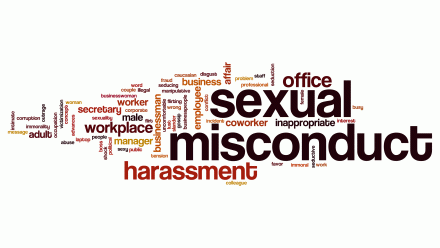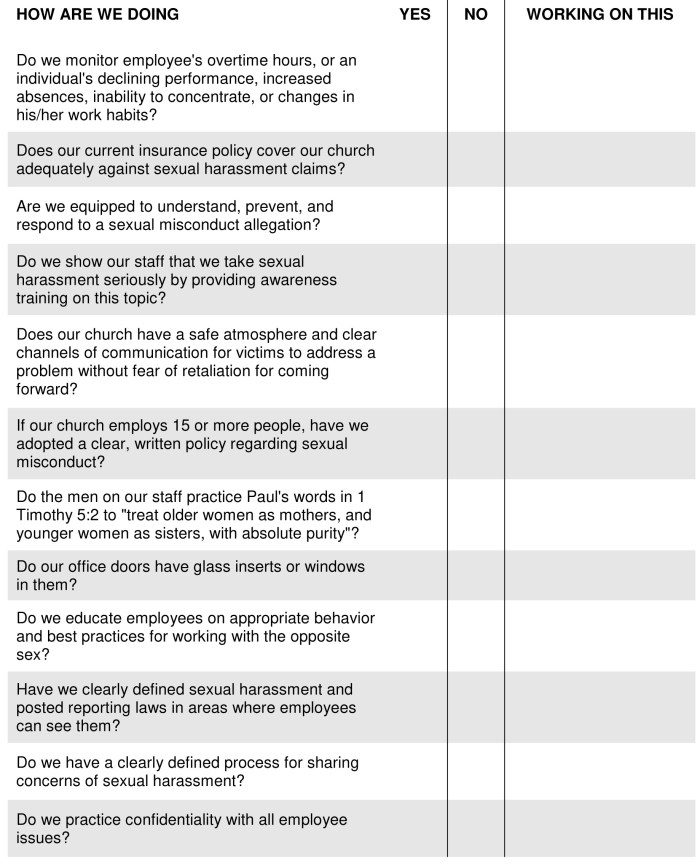Sexual harassment occurs in all kinds of work settings. While we may think it’s more prevalent in secular businesses and organizations, the church is not immune to incidents of sexual misconduct among ministry workers. Use the following checklist to gauge how proactive your church is at preventing sexual misconduct and how prepared it is to respond to an allegation of sexual harassment.
Download a PDF version of this checklist.
The legal definition of sexual harassment is when the terms, conditions, or privileges of employment are determined on the basis of sex. The two recognized forms of sexual harassment are (1) when an employee is subjected to unwelcome advances and submission is explicitly or implicitly made a condition of employment, and (2) when the employer (directly or through agents) creates an intimidating, hostile, or offensive work environment.
The following are some simple steps you can take to help educate and equip your church body to prevent sexual harassment in your congregation.
Create a Safe Environment
Be vocal. Let your staff and congregation know that you take harassment seriously. Those who work at and attend the church should feel safe if they need to come forward with an accusation of sexual harassment.
Define policies. If there aren’t currently policies in place concerning sexual harassment in your church, create them. The church must be prepared if an allegation surfaces. Putting your staff and volunteers through a sexual ethics course may also prevent harassment at your church.
Keep a Safe Environment
Practice accountability. One way to keep your staff accountable is to monitor overtime hours, an individual’s declining performance, increased absences, inability to concentrate, or changes in his/her work habits.
Check your insurance. Make sure your church insurance covers employment-related claims, such as a sexual harassment claim.
Address allegation. When an allegation surfaces at your church, remove the accused from contact with the claimant during the investigation. The claimant should also be offered pastoral assistance, including counseling. Contact your insurer, attorney, and governing church bodies so they can further advise you on your next steps.






